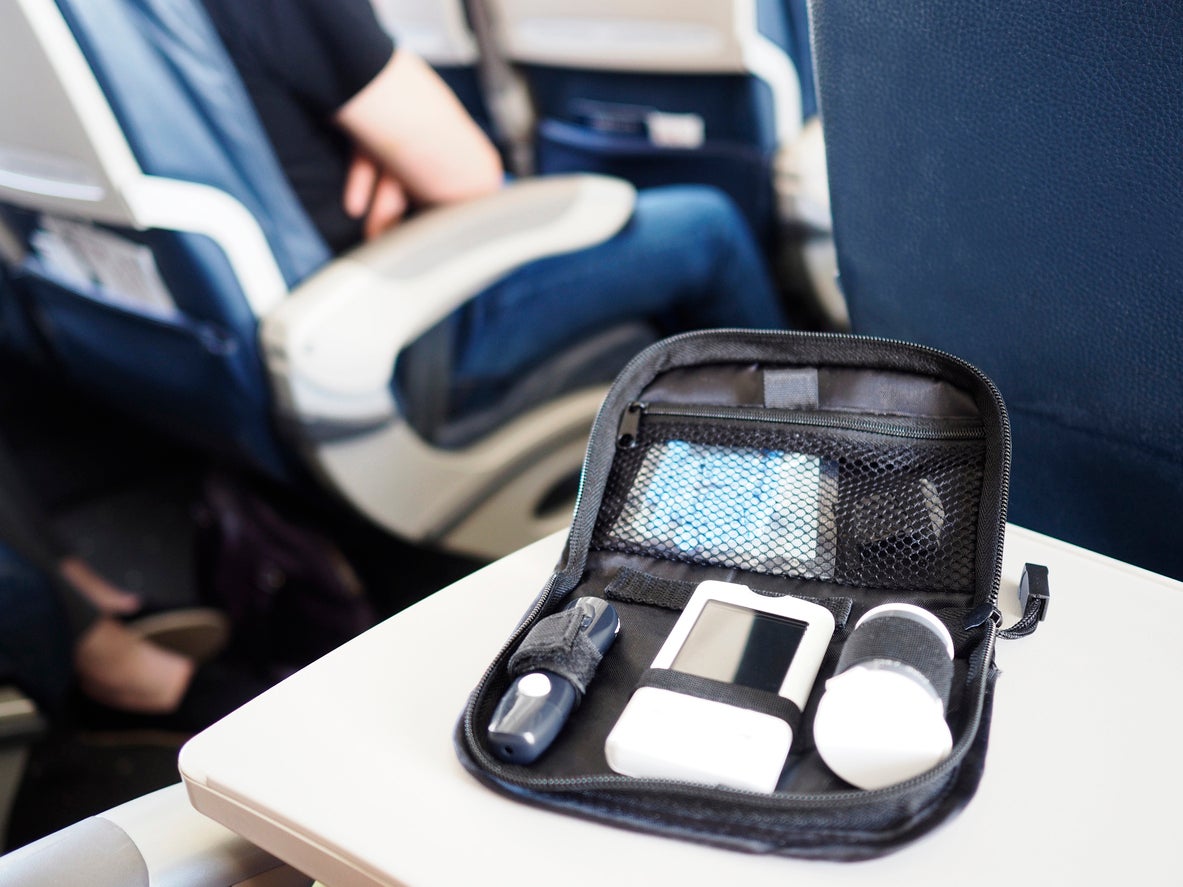‘Incredibly outdated’: Doctors call out airlines for lack of medical supplies on planes
‘We shouldn’t have to be dependent on another passenger having these in case of emergency,’ writes frustrated MD

Your support helps us to tell the story
From reproductive rights to climate change to Big Tech, The Independent is on the ground when the story is developing. Whether it's investigating the financials of Elon Musk's pro-Trump PAC or producing our latest documentary, 'The A Word', which shines a light on the American women fighting for reproductive rights, we know how important it is to parse out the facts from the messaging.
At such a critical moment in US history, we need reporters on the ground. Your donation allows us to keep sending journalists to speak to both sides of the story.
The Independent is trusted by Americans across the entire political spectrum. And unlike many other quality news outlets, we choose not to lock Americans out of our reporting and analysis with paywalls. We believe quality journalism should be available to everyone, paid for by those who can afford it.
Your support makes all the difference.Doctors have slammed airlines including Delta for not providing up to date and sufficient medical kits for inflight treatment and emergencies.
On Sunday, Boston-based oncologist Dr Andrew Merrill tweeted: “Dear @Delta, I just assisted in a medical emergency in the air.
“Your medical kits need a glucometer, epi pen, and automatic blood pressure cuffs - it’s impossible to hear with a disposable stethoscope in the air.
“Please improve this for passenger safety!”
Epi-pens are used to combat extreme allergic reactions and ease fatal anaphylactic shock, while glucometers help measure a patient’s blood sugar if they collapse.
Several passengers have suffered deadly allergic reactions mid-flight in recent years, including 15-year-old Natasha Ednan-Laperouse, whose death sparked changes to food labelling laws known as Natasha’s Law.
Dr Merrill’s tweet attracted more than 2,200 replies and 1,700 quote tweets, many of them doctors agreeing with the inadequacy of medical supplies onboard commercial flights.
Charleston-based surgeon Dr Bryan Richmond agreed, replying: “I had a similar experience on the same airline 20 years ago. Sad to see nothing has changed.”
US surgeon Dr Charles Harper commented: “Had a similar situation on an overseas flight. Very difficult to auscultate,” referring to a difficulty hearing heart and lung sounds over the roar of an aircraft engine.
Meanwhile, Milwaukee-based Dr Courtney Smith wrote: “I assisted with a medical emergency three months ago on a @united flight and really needed narcan. This is a life saving medicine that should be stocked in every medical bag.”
Narcan is a brand name for the drug naloxone used to restore normal breathing when someone has suffered from an opioid overdose.
One medical professional who had assisted with an emergency on a Southwest flight called the airline’s kit “incredibly outdated”. Many doctors said they carry their own higher quality stethoscope with them on flights in case of an incident.
Other doctors reported missing pulse oximeters, blood pressure monitors and glucagon while assisting inflight emergencies on various airlines - as well as one instance of an airline which had a blood pressure cuff, but no battery for it.
Boston-based physician Jeremy Faust pointed out that most planes will contain at least one passenger carrying an epi-pen, but Dr Merrill insisted, “Yes, but the point is that we shouldn’t have to be dependent on another passenger having these in case of emergency.”
Most of the doctors commenting were based in the US or were referring to US airlines.
The country’s Federal Aviation Administration (FAA) has required a medical kit to be carried on all flights since 1986, containing supplies including an epi-pen and a dextrose injection for hypoglycaemic patients.
In its last update to medical kit rules, the FAA added an automated external defibrillator (AED) to the list of a plane’s medical requirements.
However, in October 2019 the New York Times reported that the FAA had granted US airlines a four-year exemption for passengers planes “to fly without a complete emergency medical kit if the airlines say they cannot replenish the drugs”.
The drugs concerned were atropine, dextrose, epinephrine, and lidocaine, which were less available due to manufacturing shortages, and “the exemptions apply to international as well as domestic flights,” reported the publication.
The exemption was due to expire in January 2020, but many doctors have been concerned by inadequate medical supplies on aircraft since then.
One paramedic tweeting as @harlemedic in the thread posted a letter they had written to the FAA to check if this waiver was still in place, commenting: “I’ve written to them numerous times asking for reconsideration or at least an update. Never even got a response...”
The Independent has approached Delta, United, Southwest and the FAA for comment.
Join our commenting forum
Join thought-provoking conversations, follow other Independent readers and see their replies
Comments